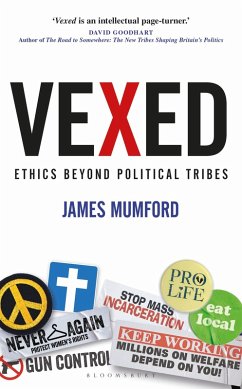Across the democratic West, politics has become deeply polarised and profoundly personal. Challenge someone's political views and increasingly you challenge their very being.
And yet, do our political tribes even make sense? Look carefully, and on the most important ethical issues of the age - assisted dying, social welfare, sexual liberation, abortion, gun control, the environment, technology, justice - the instinctive positions of both the Left and the Right are riven with contradictions.
In this refreshing and eye-opening book, James Mumford, a public thinker and independent commentator, questions the basic assumptions of our political groups. His challenge is simple: 'Why should believing strongly about one topic mean the automatic adoption of so many others?'
Vexed is an essential and provocative account that will appeal to anyone of independent thought, and a welcome call for new reflection on the moral issues most relevant to our modern way of life.
And yet, do our political tribes even make sense? Look carefully, and on the most important ethical issues of the age - assisted dying, social welfare, sexual liberation, abortion, gun control, the environment, technology, justice - the instinctive positions of both the Left and the Right are riven with contradictions.
In this refreshing and eye-opening book, James Mumford, a public thinker and independent commentator, questions the basic assumptions of our political groups. His challenge is simple: 'Why should believing strongly about one topic mean the automatic adoption of so many others?'
Vexed is an essential and provocative account that will appeal to anyone of independent thought, and a welcome call for new reflection on the moral issues most relevant to our modern way of life.


